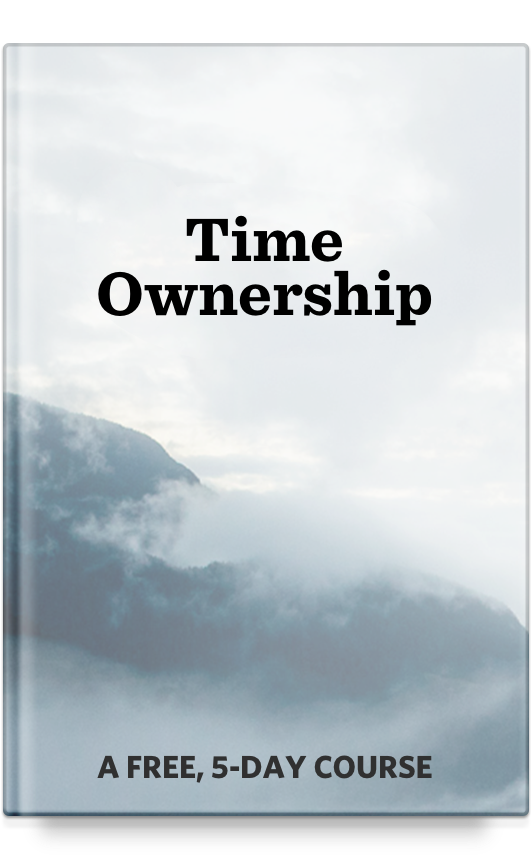This month’s book is a long-overdue pick (if you haven’t read it already).
Moreover, it’s the perfect follow-up to last month’s book, The Dip.
March’s reading is Deep Work, by Cal Newport.
The whole hypothesis behind Deep Work is this:
The ability to perform deep work is becoming increasingly rare at exactly the same time it is becoming increasingly valuable in our economy. As a consequence, the few who cultivate this skill, and then make it the core of their working life, will thrive.
In his book, So Good They Can’t Ignore You, Cal writes that people will hit a performance plateau beyond which they fail to get any better. (Which, by the way, is exactly what last month’s book, The Dip, is all about.)
Deep Work continues this theme. Cal writes: “To succeed you have to produce the absolute best stuff you’re capable of producing — a task that requires depth.” (pg. 13)
What Deep Work is all about is how to push through that plateau; how to move toward mastery; how to stay focused; and why it all matters. This book gives practical advice and insight about what to do when you do show up to do the work and how to turn it into a part of your lifestyle.
Deep Work Unto Your Best Work
The common habit of working in a state of semi-distraction is potentially devastating to your performance. […]
To produce at your peak level you need to work for extended periods with full concentration on a single task free from distraction. Put another way, the type of work that optimizes your performance is deep work. If you’re not comfortable going deep for extended periods of time, it’ll be difficult to get your performance to the peak levels of quality and quantity increasingly necessary to thrive professionally. Unless your talent and skills absolutely dwarf those of your competition, the deep workers among them will outproduce you.
I’ve spoken to many people who are struggling with the balance of growing their business or side project. In fact, this is a challenge that I am also facing.
If you feel that you’ve reached a ceiling in your ability to create quality work on a consistent basis, it’s probably because in your work life there is an undercurrent of working in a distracted state. Are you often in a semi-focused state at best? If so, then it’s no wonder that it can feel impossible to gain traction on business growth while also maintaining your ability to do high-quality creative work.
There are two moves for people in this situation…
For one, they no doubt need to automate, eliminate, and delegate additional tasks and responsibilities off their plate. Freeing them up to focus more on things that only they can do.
Secondly, they need more time spent on intentional practice and focused, deep work. As Cal writes, “Deep work helps you produce at an elite level.”
Clarity Cures Busywork
You need clarity about what matters if you want to do deep work on a regular basis over the long run.
Something I’ve written about before is how I always plan my single, most-important task, ahead of time. At the end of each day, I write down the one thing I’m going to focus on tomorrow that is most important.
Then, on the following day when I sit down to do the work, I have only one focus: accomplish the previously-defined task.
However, without that foreknowledge of defining ahead of time what is most important, then I would have a dual-focus when it came time to do my focused work. First, I would have to think about what to do, and then I would have to begin doing the actual work.
This lack of clarity about knowing what it is that is important to do is why so many people turn to email and other inboxes in order to keep “busy”. They don’t know what else to do. And thus they end up doing shallow busywork which helps them to feel productive.
Cal warns against using busyness as a proxy for productivity. He writes:
In the absence of clear indicators of what it means to be productive and valuable in their jobs, many knowledge workers turn back toward an industrial indicator of productivity: doing lots of stuff in a visible manner.
Clarity about what matters provides clarity about what does not.
On choosing to embrace boredom:
The ability to concentrate intently is a skill that must be trained. […] Much in the same way that athletes must take care of their bodies outside of their training sessions, you’ll struggle to achieve the deepest levels of concentration if you spend the rest of your time fleeing the slightest hint of boredom.
Related: My alternatives The Just Checks
Also: My Interview with Cal Newport
When Deep Work first came out, I had the honor of interviewing Cal on my podcast. You can listen to the episode here, or, if you prefer to read, I’ve written out all the key takeaways, etc.
Where to Buy
If you’d like to join us in reading Deep Work this coming month, here’s some links where you can get a copy of the book:
